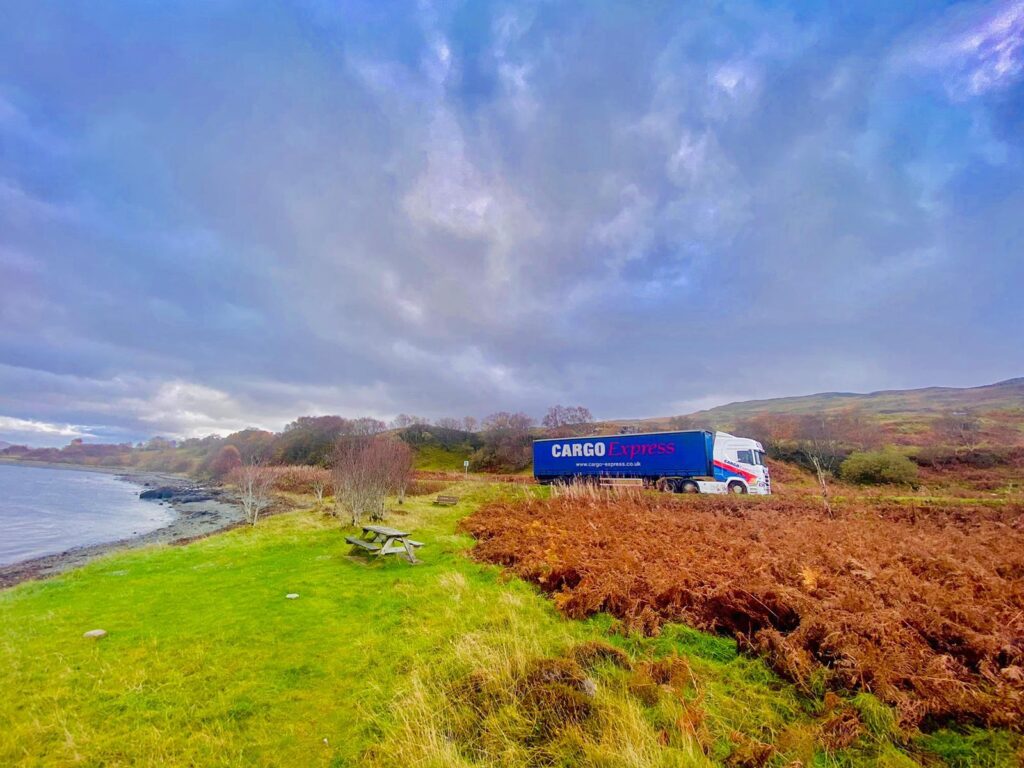With the United Nations COP27 in its final week, sustainability is now a key discussion point when it comes to talking about the future, especially as we look towards reaching net zero emissions by 2050.
We understand that the logistics sector has many steps to take towards decarbonisation and reducing its environmental impact in order to reach these goals.
Below we have outlined the methods we have implemented to ensure more sustainable operations and reduce our carbon footprint, as well as our plans for our future and what we are expecting to see across the industry.
1. Route planning to reduce emissions
When it comes to providing transport and logistics solutions, we constantly monitor our fleet to ensure we are making greener choices. We ensure everything is planned out to provide smooth and efficient delivery, reducing emissions through extensive research into routes to minimise the ground covered and cut out any unnecessary miles within those routes.
To guarantee this, we do extensive route planning helps to ensure we cover minimal miles using the smoothest routes to save fuel and time. When stocking our vehicles, we utilise the space resourcefully – loading the required material onto the most efficient vehicle to make certain no vehicles are running at half-capacity, when not required. Running vehicles without a load is unnecessary pollution, so we look to our network to make most of the impact during the commutes. Throughout the UK, we have a large network of partners and customers, who provide backload and return loads towards the vehicle depots.
A backload means once a delivery is made, the vehicle isn’t running back to the depot without a load. The same vehicle is utilised where another vehicle would usually be required, reducing fuel consumption and carbon emissions.
2. Using efficient vehicles
We choose our vehicles based on miles per gallon (MPG), which measures a vehicles fuel economy and efficiency.
When buying new vehicles for our fleet, we base our decisions on this measurement. We look for more economical vehicles with a high MPG, as this saves money on fuel costs when in transit, but also minimises fuel consumption and reduces Cargo Express’ carbon footprint.
3. Effectively training our drivers
As part of our Driver Training Programme, we also ensure that our drivers are trained extensively in driving styles and management.
Our training process is ongoing, including regular training for our current drivers, as well as being consistently implemented on new drivers we recruit.
Explore our four key driving tips for making haulage more environmentally friendly.
The future of Cargo Express
At Cargo, we are aware of the importance of sustainability, and as a company based around time-critical transport, we know this situation is also time critical. We want to adapt and overcome any possible barriers preventing us from being net zero.
Looking towards the future, we understand the need to look at alternative sustainability measures that we can apply to our company to aid against climate change. With many of these sustainability methods having groundwork but lacking certain foundations that would allow them to be completely implemented, it is hard to find an effective and reliable solution.
A key discussion for change regarding sustainability is alternative fuel solutions. Some companies have chosen to start trialling battery truck concepts, while others are looking into hydrogen options. Although these have advantages, both are still in the framework stage.
As our Managing Director Joseph O’Reilly explains:
“It is clear the future lies in alternative fuel solutions. Realistically, we believe that electric vehicles and HGVs will be a quicker and more appealing solution at this stage than possibly hydrogen models.
Although we want to move to electric vehicles as soon as possible to reduce our carbon footprint, we need to have the infrastructure in place across the UK and EU for this to be a viable solution.
At this stage, there are limited electric charge points for heavy goods vehicles across the country and installing them involves a huge level of investment that many companies at this stage cannot afford to undertake.
Undoubtedly, as the market changes and infrastructure improves, electric vehicles will be the future of transport and logistics. It is for us and other companies to ensure as soon as it is viable for the operation and routes to do what they can to become net zero as soon as possible.”
Market changes and improvements to the current infrastructure will have a huge impact on the future of transport and logistics, and its carbon neutralisation. However, for us and many other companies, the current objective is to ensure everything involving our operation and routes are as sustainable as possible.
Cargo Express
We offer expert transport and logistics solutions to businesses throughout the UK and Europe, alongside warehouse management services and storage facilities.
With every operation, we provide high levels of support to our customers, with cost-effective, sustainable, and streamlined transport solutions to help meet your business’ logistics needs.
Want to find out more about our operations based in Birmingham and Telford? Speak to our team of experts on 0121 384 1323!
